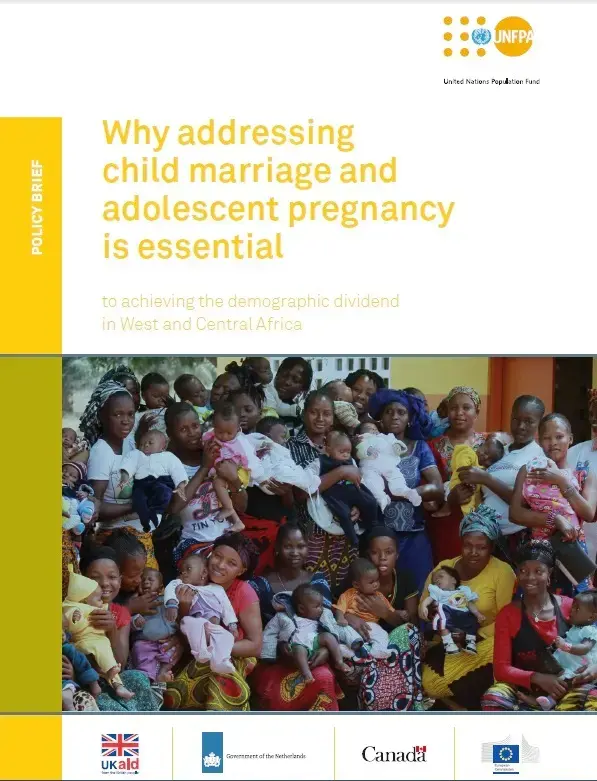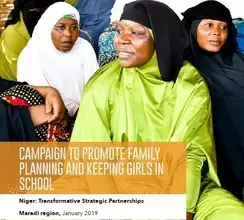The West and Central Africa region1 has 506.4 million people thus accounting for about 43 per cent of Africa's population. With current trends, the population is expected to increase to 756.2 million people by 2030.2 In addition, the population of West and Central Africa is predominantly young. More than 64 per cent are under the age of 24. These young people are a tremendous resource for the region but they face considerable challenges in terms of their health, education, employment and empowerment.
Women and girls, in particular, in West and Central Africa are vulnerable to a disproportionate range of risks, particularly to their sexual and reproductive health. Girls are subject to child marriage, female genital mutilation
and limited education and as such, are denied equality of opportunities.
At the beginning of 2016, the African Union Heads of State and Government underlined a commitment to put youngpeople and women first by agreeing to focus on “Harnessing the demographic dividend through investments in youth” throughout 2017 and beyond.3 UNFPA in West and Central Africa recognizes the critical importance of investing in adolescents and youth, particularly adolescent girls. The key to achieving the demographic dividend is enabling young people- and especially adolescent girls - to reach their potential.





